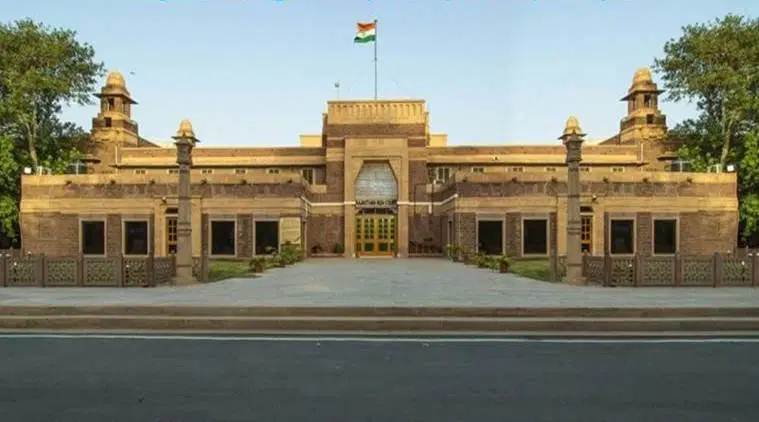 The MLAs also argued that the Speaker had taken the decision in “haste”, and pointed out that around 10 months on, no notice has been issued in a case pertaining to the merger of BSP MLAs with the Congress.
The MLAs also argued that the Speaker had taken the decision in “haste”, and pointed out that around 10 months on, no notice has been issued in a case pertaining to the merger of BSP MLAs with the Congress.
The Rajasthan High Court has extended till Tuesday evening the deadline set by Speaker C P Joshi to the 19 rebel state Congress MLAs to respond to his showcause notices.
At a hearing on Friday that remained inconclusive, the MLAs contended that the disqualification notices per se were unconstitutional. Second, that as per settled principles of the Rajasthan Vidhan Sabha rules, they had to be given at least a seven-day period to reply to the notices.
The MLAs also argued that the Speaker had taken the decision in “haste”, and pointed out that around 10 months on, no notice has been issued in a case pertaining to the merger of BSP MLAs with the Congress. They also accused the Speaker of malice.
The petition by the MLAs makes Joshi as well as the office of the Speaker and the Assembly Secretary parties to the case. They say no offence has been made out against them, and that the disqualification notices on the ground of defection go against their right to freedom of speech.
While the MLAs were represented by former Solicitor General of India Harish Salve and ex-Attorney General Mukul Rohatgi, among others, Rajasthan Advocate General M S Singhvi and Abhishek Manu Singhvi were part of the team that appeared for the respondents.
Arguing on behalf of the Speaker, Abhishek Singhvi said the Speaker “is the master of procedure”, and that the notice period “is not a constitutionally prescribed period”.
About the MLAs’ contention that the whip was not applicable to them outside the House and that Joshi was biased, Singhvi said the Speaker’s actions were not mala fide. “… the Speaker can per se look at allegations of speech and activities outside the House and doing so is not mala fide and (is) within the contours of the Constitution. In fact, Speakers across state legislatures have done so in a manner consistent with the Tenth Schedule (that covers defection) and in cases identical to the current one.”
With the MLAs claiming that they only wanted to express their genuine grievances and that the notices violated their right to freedom of speech, Singhvi said the Speaker’s notices “would not fall foul of the basic structure (of the Constitution) doctrine”.
On the petitioners challenging the constitutionality of the anti-defection law itself, specifically its clause 2[1](a), Singhvi said “their argument is unsupported by law and is based on implausible leaps of imagination”. If the challenge was allowed by the High Court, he said, “all judgments of the Supreme Court (in this matter) would be rendered useless”.
While Clause 2 of the 10th Schedule deals with disqualification of a member on grounds of defection, its point [1](a) states that a member may be disqualified “if he has voluntarily given up his membership” of a political party. The MLAs have argued that “even if expression of views and opinions, however strongly worded, are treated to be a part of clause 2[1](a), the said clause… will have to be declared ultra vires the basic structure of the Constitution” on the ground of the right to free speech.
Singhvi could not be heard entirely and will resume his argument when the case next comes up before the court at 10 am on Monday.